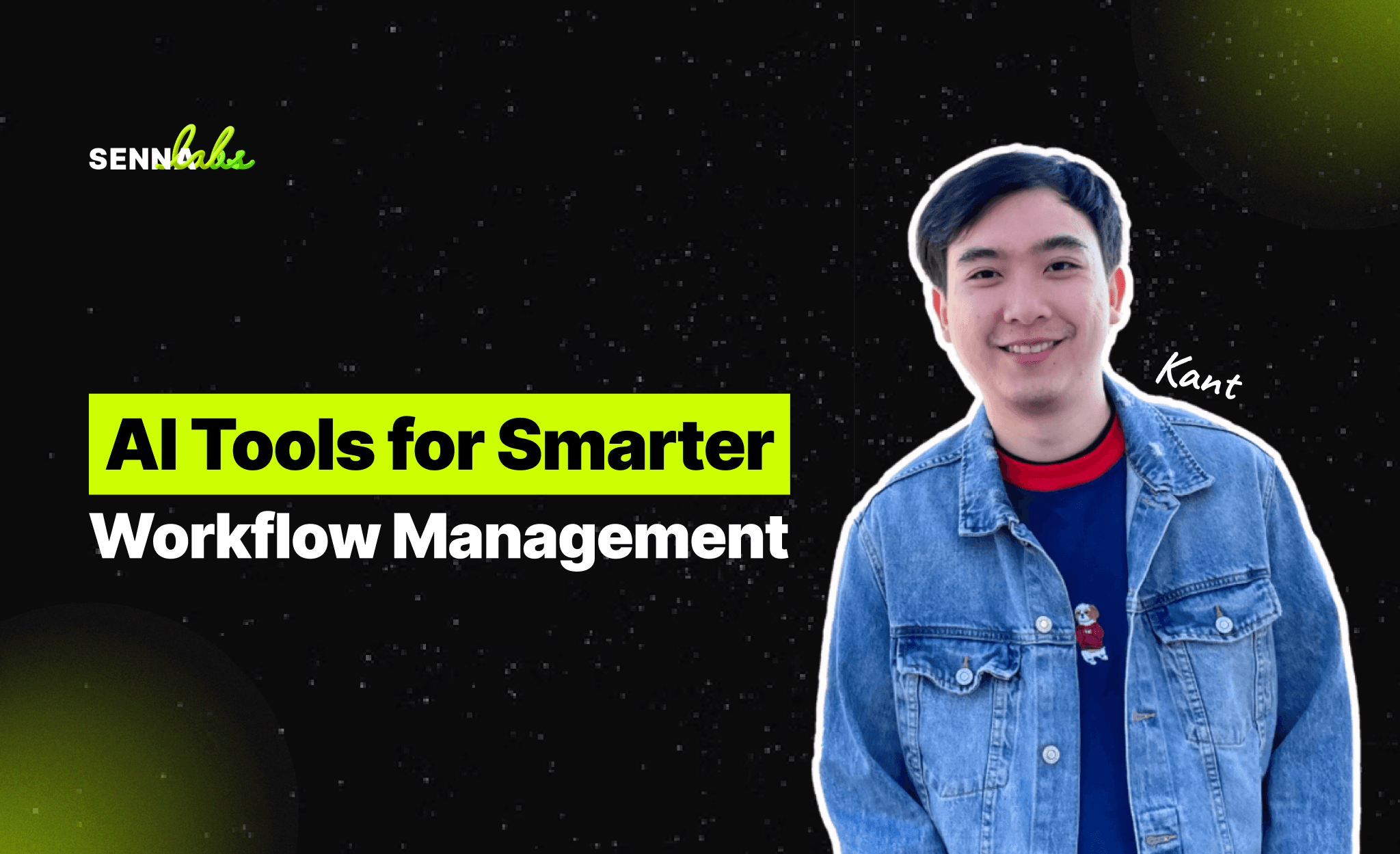AI Tools for Smarter Workflow Management
Share

As organizations grow and diversify, managing workflows becomes increasingly complex. Customizable workflows tailored to specific business needs are critical for efficiency, and AI agents have emerged as the ultimate solution. By analyzing operations, automating repetitive tasks, and adapting workflows to real-time conditions, AI agents empower businesses to streamline operations, boost productivity, and adapt to changing demands.
This article explores how AI agents enable workflow customization, highlighting their role in optimizing operations, enhancing collaboration, and driving innovation across industries.

The Challenge: One-Size-Fits-All Workflows
Traditional workflows are often rigid and fail to adapt to unique organizational needs. Common challenges include:
-
Inefficiency: Standardized processes may not address specific operational bottlenecks.
-
Limited Adaptability: Static workflows struggle to accommodate dynamic or evolving business conditions.
-
Scalability Issues: As organizations grow, traditional workflows become harder to manage and customize.
-
Data Overload: Manual workflow adjustments can’t keep pace with the massive amounts of data modern businesses generate.
These challenges highlight the need for intelligent, flexible systems that can dynamically adjust workflows to suit specific goals.
How AI Agents Enhance Workflow Customization
AI agents use machine learning, natural language processing (NLP), and predictive analytics to design, manage, and optimize workflows. Here’s how they make workflows more customizable:
-
Dynamic Workflow Adaptation:
-
AI agents analyze real-time data to modify workflows on the fly, ensuring optimal performance under changing conditions.
-
Task Automation:
-
Repetitive, time-consuming tasks such as data entry, scheduling, and reporting are automated, freeing employees for strategic work.
-
Predictive Insights:
-
AI agents identify potential bottlenecks or inefficiencies and suggest improvements to streamline operations.
-
Role-Based Customization:
-
Workflows are tailored to the specific roles or departments within an organization, ensuring relevance and efficiency for every user.
-
Integration with Tools:
-
AI agents integrate seamlessly with existing software systems (e.g., CRM, ERP, project management tools) to create unified, customized workflows.
Use Case: AI Agents in Workflow Customization
A marketing agency adopts an AI agent to optimize its project workflows. Here’s how the system works:
Step 1: Analyzing Existing Workflows
-
The AI agent examines current project timelines, task dependencies, and bottlenecks using historical data.
-
It identifies that content approval delays often slow down campaign launches.
Step 2: Customizing Task Assignments
-
The AI agent redistributes approval tasks to additional team members with available bandwidth.
-
It prioritizes tasks based on deadlines and team workload, ensuring smoother execution.
Step 3: Automating Notifications and Follow-Ups
-
The AI agent sends automatic reminders to team members about upcoming deadlines or pending approvals.
-
It flags overdue tasks and notifies project managers in real time.
Step 4: Monitoring and Refining Workflows
-
The AI agent continuously tracks workflow performance, analyzing metrics like task completion rates and time-to-delivery.
-
Based on trends, it suggests further refinements, such as adding extra review stages for high-priority campaigns.
Benefits of AI-Driven Workflow Customization
-
Increased Efficiency: Automated workflows reduce manual intervention, speeding up processes and eliminating redundancies.
-
Enhanced Accuracy: AI minimizes errors by ensuring tasks are assigned and executed according to optimized workflows.
-
Scalability: AI agents adapt workflows to accommodate growth or changes in organizational structure.
-
Improved Collaboration: Customized workflows ensure that all team members are aligned and tasks are coordinated effectively.
-
Real-Time Responsiveness: AI agents adjust workflows in real time, responding to unexpected challenges or opportunities.
Applications Across Industries
AI agents enable workflow customization in various sectors:
-
Healthcare: Streamline patient care by customizing appointment scheduling, treatment plans, and administrative workflows.
-
Finance: Automate compliance checks, fraud detection, and reporting processes tailored to regulatory requirements.
-
Retail: Optimize inventory management, order fulfillment, and personalized marketing campaigns.
-
Manufacturing: Enhance production efficiency through predictive maintenance and resource allocation.
-
Education: Customize learning pathways and administrative tasks based on student needs and institutional goals.
Challenges and Solutions
Despite their benefits, implementing AI agents for workflow customization can present challenges:
-
Integration Complexity: AI systems may face compatibility issues with existing tools.
Solution: Use AI platforms with robust APIs and flexible integration capabilities. -
Data Privacy Concerns: Handling sensitive organizational data raises privacy and security issues.
Solution: Employ encryption, secure access controls, and compliance with data protection regulations. -
Resistance to Change: Employees may be hesitant to adopt new AI-driven workflows.
Solution: Provide training, emphasize benefits, and involve teams in the customization process to encourage buy-in.
The Future of AI-Driven Workflow Customization
As AI technology continues to evolve, workflow customization will become even more advanced. Key trends include:
-
Hyper-Personalization: AI agents tailoring workflows to individual employees based on their preferences and performance metrics.
-
Context-Aware Automation: Systems that adapt workflows based on real-time contextual data, such as external market trends or internal resource availability.
-
Cross-Platform Integration: AI agents unifying workflows across disparate systems and tools for seamless operations.
-
AI Collaboration: Multiple AI agents collaborating across departments to create cohesive organizational workflows.
Conclusion
AI agents are revolutionizing workflow customization by automating processes, adapting to real-time conditions, and tailoring workflows to specific organizational needs. From healthcare to manufacturing, their ability to streamline operations, reduce errors, and enhance collaboration is transforming industries.
For businesses seeking to optimize efficiency and remain agile in a dynamic environment, AI-powered workflow customization is not just an option—it’s a necessity. By leveraging the power of AI, organizations can unlock their full potential and stay ahead in an increasingly competitive world.

Share

Keep me postedto follow product news, latest in technology, solutions, and updates
Related articles
Explore all


